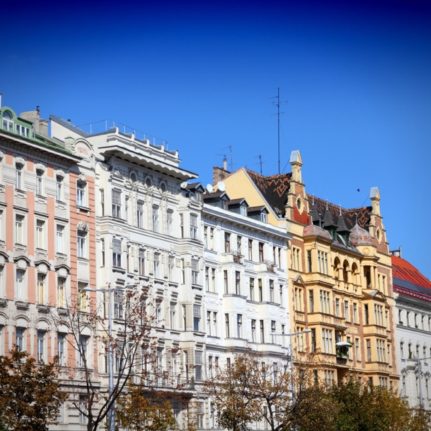For our foodie readers, here is an overview of the latest movers and shakers on the capital’s restaurant scene.
Blue Mustard
Dorotheergasse 6-8, 1010 Vienna, www.bluemustard.at
Blue Mustard opened in June 2016 in a prime city centre location, right next to the pedestrianised Graben shopping street. By day its Airstream trailer serves up street food and coffee to go, and at nights the restaurant and bar open up. The food is cosmopolitan with menu highlights flitting between Vienna, Naples, Paris and Tokyo. The bar also serves smaller snacks.
Art
Falkestrasse 5, 1010 Vienna, www.artdinnerclub.com
Also in the first district, the focus at Art is on low carb, low fat and low sugar food. Beautifully mixed cocktails bring out the flavours of each dish. The head chef and the barkeeper work together to ensure that their “food & cocktail pairing” approach hits the spot every time. Inside, the uncluttered interior is brought to life by works created by international artists.
Habibi & Hawara
Wipplingerstrasse 29, 1010 Vienna, http://habibi.at
Meaning “friend” in Arabic and Viennese dialect, this new arrival on Wipplingerstrasse in the first district, is run by refugees and Viennese chefs. The outcome is Austro-oriental fusion cuisine, with set menus available at lunch time and an à la carte family menu consisting of several courses in the evenings. There are also places to sit outside in the restaurant’s sunny ‘Schanigarten’.
Chuchù
Wipplingerstrasse 21, 1010 Vienna, www.chuchu.at
A few doors down from Habibi & Hawara, Chuchù concentrates on contemporary Latin American and Caribbean styles of cuisine with a hint of the Far East. Described by one reviewer as a “taste explosion”, it only opened in July so is very fresh on the scene. Delicious cocktails are also available from the bar in the evenings.
Ramasuri
Praterstrasse 19, 1020 Vienna, www.ramasuri.at
On Praterstrasse, now a culinary hotspot in its own right, Ramasuri has set up shop in a 19th century palace. The new restaurant in the second district took a fresh look at Viennese cuisine, and added a long overdue selection of vegan alternatives for its patrons to enjoy in the sidewalk café in front of the Johann Nepomuk Nestroy memorial. It also has great breakfast/brunch options, many of them suitable for vegans or vegetarians.
Grace
Grace, Danhausergasse 3, 1040 Vienna, www.grace-restaurant.at
On the other side of town, the fourth district welcomes new arrival Grace. Oliver Lucas, former sous chef at the two-Michelin-starred Steirereck, serves first class creative cuisine in a laid-back Gasthaus setting. With a set menu of four courses costing 48 (rising to 66 for six or 84 for eight courses), it is perfect for a fancier occasion rather than everyday nosh.



 Please whitelist us to continue reading.
Please whitelist us to continue reading.
Member comments